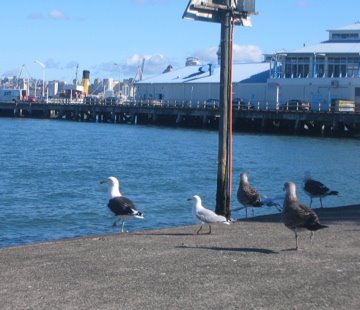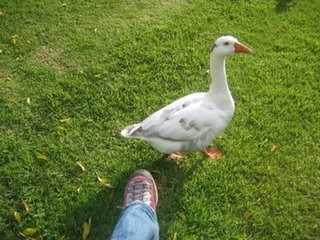Phoning the Home of the Moriori
Here is why my life is awesome: on a regular basis, I get to send packages and make phone calls to the Chatham Islands.
The Chathams (pop. 717) are a little group of islands way far away from pretty much everything else. New Zealand is already one of the most isolated places in the world, and the Chathams are 800 kilometers east of Christchurch. That's about the same distance from Ann Arbor to St. Louis--but with nothing but ocean in between. They're no Pitcairns or Easter Island, but they're a bit more than a hop, skip and a jump away.
Anyway, here is a fairly typical interaction with the health provider we work with out there:
-It all starts because I need to send some documents to them by courier (they're contracts, so I need to make sure they get there)
-But the people at the courier company don't have the Chatham Islands in their computer, so they can't ship there. (I should note that it was NOT typical that the woman working at the courier company had never even heard of Chatham Islands)
-So I call the provider to ask what they think would be the best way to get the contracts to them
-Well, they tell me, you can't actually courier stuff out there. The best you can do is courier the contracts to the Wellington airport addressed to Air Chathams, and then Air Chathams will take them out there.
-Another option is to just send them by regular mail. Let's see, there's a mail plane going out in a few days, so the contracts can get there by mid next week. They'll sign them right away and stick them on the next plane back, so it should be about a week and a half total turn-around time? That'll probably be the fastest way.
Sometimes I forget I'm on the other side of the world. For the most part things aren't that different here. It's mostly the same cultural norms, same standard of living, same technology, same food, etc. But then I'm making phone calls to remote islands, sending emails in an indigenous language most Americans have probably never heard of, and walking past stands of pine and palm trees. It's a little like living in an alternate universe, but much cooler. At least compared to all the other alternate universes I've l lived in.






